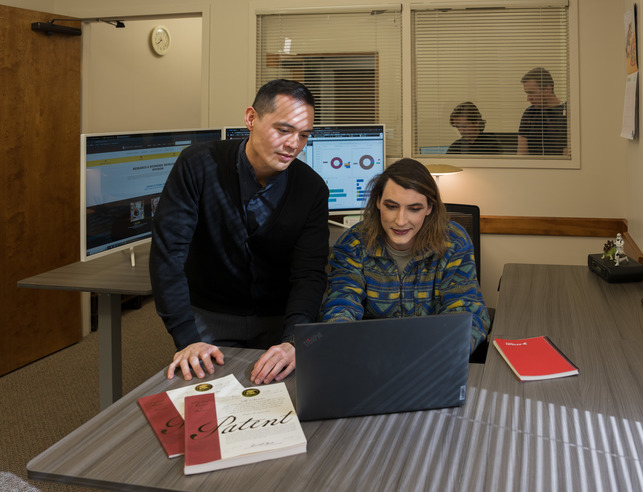Resources for Faculty and Instructors
Managing Accommodation Requests
Overview of Faculty Rights and Responsibilities
- Collaborate Early: We are here to partner with you. Contact DSS immediately with concerns and questions about student accommodations. We love phone calls (307-766-3073)! Picking up the phone is typically your fastest response. The interactive process works best through ongoing partnerships between the student, DSS, and faculty.
- Provide all listed accommodations: Accommodation notifications outline your legal responsibilities under Title IV and the Americans with Disabilities Act (ADA). Implement all accommodations as specified by DSS procedures. Contact DSS when concerned that an accommodation may be a fundamental alteration to your course.
- Consult before modifying: Work with the student's DSS coordinator before implementing additional steps or processes for accommodation access. ADA specifies ACCESS, not modifications to the course requirements.
- Submit testing materials on time: Provide proctoring instructions, exam details, and copies to the DSS Testing Center at least two days in advance. This can be done in person or via the AIM portal. Our center administers many tests and your cooperation with timeliness is greatly appreciated.
- Alert DSS to fundamental concerns: If an accommodation would fundamentally alter course objectives, notify DSS immediately to discuss reasonable alternatives.
- Maintain confidentiality: Keep student disAbility status and accommodations private.
- Include DSS in your syllabus: (UW Regulation G-809). Direct students to Knight Hall, Room 109, udss@uwyo.edu, or (307)766-3073.
- Report other concerns to UWYO CARES: For non-accommodation concerns, specify whether concerns are academic or safety/well-being related.
Accommodations
All students who manage symptoms of a diagnosis are encouraged to connect with DisAbility Support Services, regardless of whether they utilize formal accommodations. However, it should be noted that notification from DSS is required for exceptions to University policy and the provision of academic accommodations for a disAbility-related reason. Accommodations cannot be implemented retroactively. Some accommodations require additional conversations and a continuation of the interactive process before they are considered approved and can be implemented. Faculty who have questions or concerns about a student's requested accommodations should contact our office as soon as possible (307-766-3073).
Faculty/Staff FAQ

Faculty can view student accommodation requests for the current semester in AIM. Faculty have their own portal that can be accessed through the AIM Landing Page.
Faculty can also provide exam information for DSS proctoring through their AIM profile.
We welcome questions. Feel free to reach out via email or phone! Contact the coordinator listed on the student's accommodation letter or call the main office (307-766-3073). The student's coordinator will have an understanding of the student and their needs. For exam accommodations, our testing team may also be able to assist: 307-766-6662 or udsstest@uwyo.edu.
You are welcome to talk with the student about the request and determine if you are able to accommodate. However, ADA covers you and the student, if the student is registered with DSS. Any official accommodation will come from our office or through letter correspondence via the AIM portal. Contact us with questions and concerns at 307-766-3073.
It depends. Some students have back-to-back classes where taking an exam with accommodations needs to be rescheduled. Some students also have medical conditions that flare-up in the morning or evening. Also, we work with students to schedule them within our operating hours. This may mean scheduling a student earlier in the day or scheduling them at a later time. Our team will work with faculty to discuss any alternative exam times and are happy to connect to discuss alternatives to exam schedules: 307-766-6662 or udsstest@uwyo.edu.
Extended time is usually only implemented when an exam has a timed component (i.e. a timer or countdown clock begins and ends an exam). If your exams are scheduled to be taken within a certain period but has no timed component, then extended time may not be required.
Faculty will receive a notification via the AIM portal to let them know if a student is taking an exam with our office. Faculty will be asked to provide exam information via the AIM portal prior to the student coming in to take the exam. If you have any questions about if a student scheduled to take an exam with our office, please contact our testing center at udsstest@uwyo.edu or at (307) 766-6662.
Adding extended time for online exams should be accessible in WyoCourses/Canvas. For troubleshooting, the Ellbogen Center for Teaching and Learning (ECTL) team should be able to assist with the LMS software.
Coming Soon!
Coming Soon!


